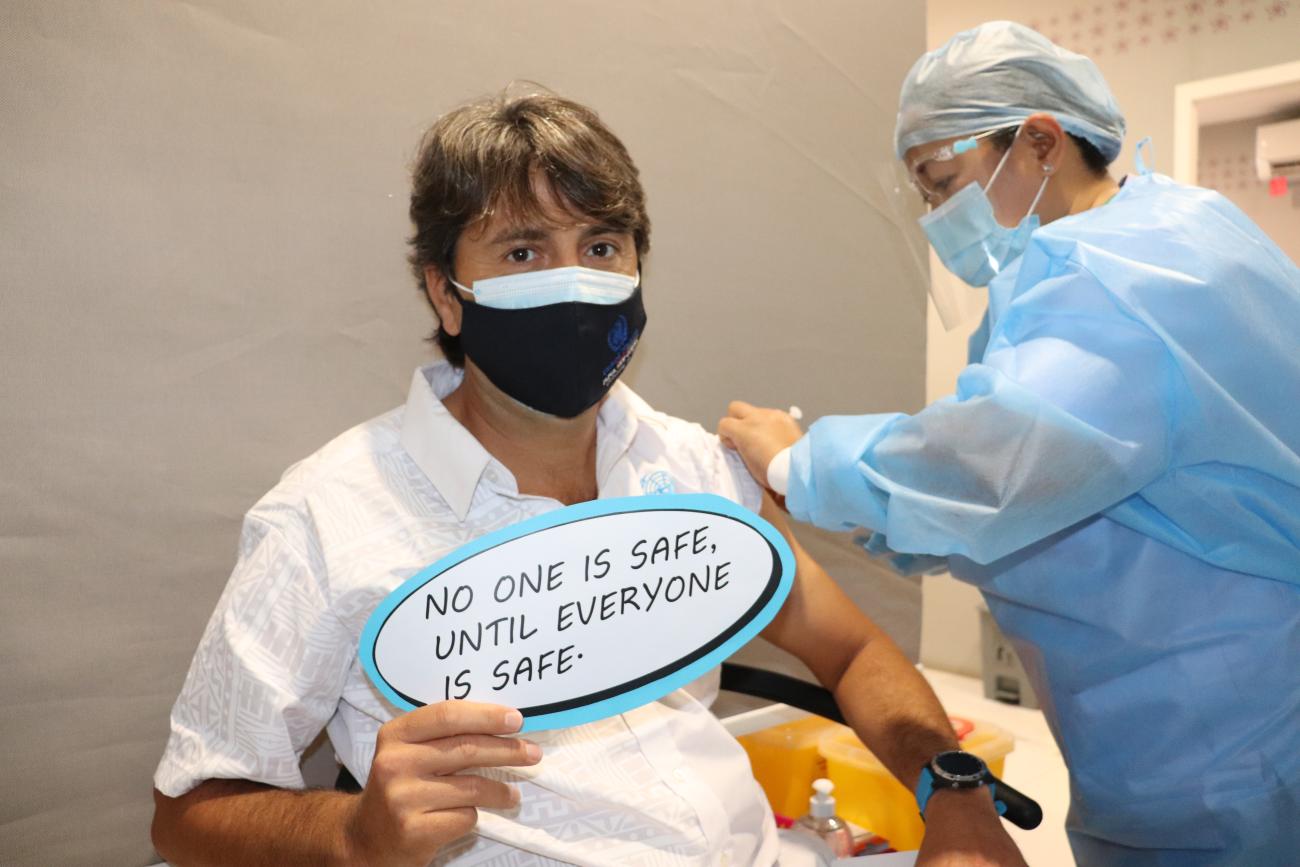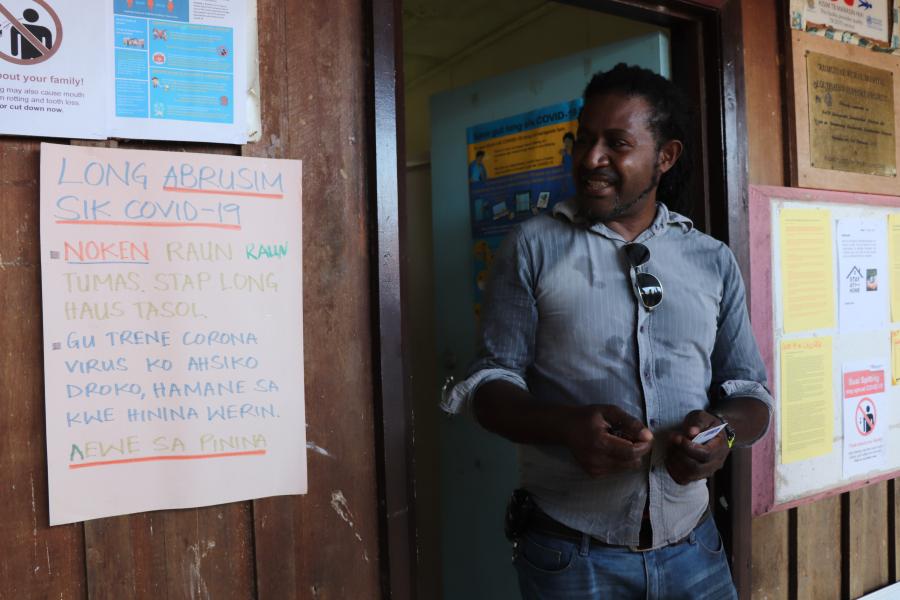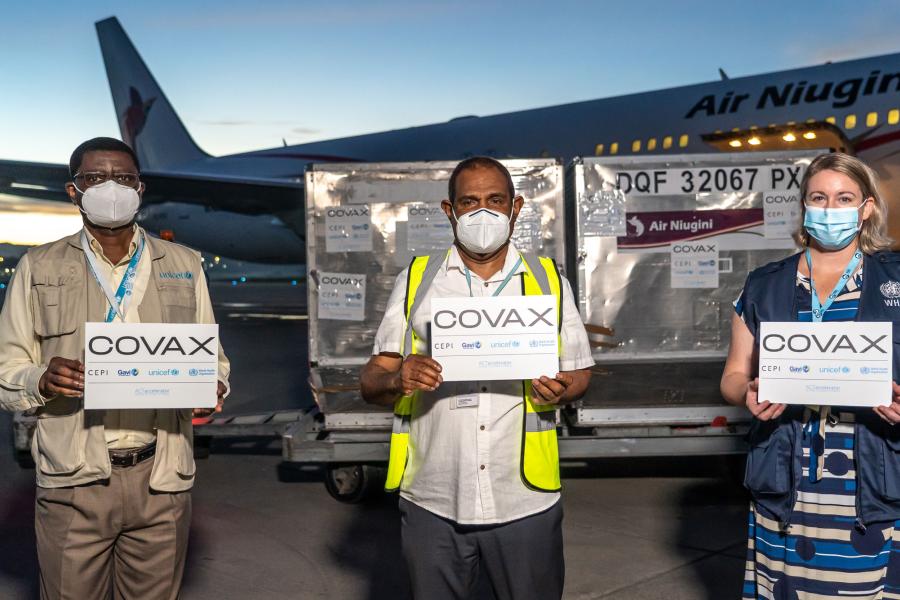Seeing Post-Pandemic Health Opportunities

Resident Coordinator Gianluca Rampolla looks at how health communications and system strengthening undertaken in 2020/21 will help PNG fight future pandemics.
On Friday, I received my first dose of the COVID-19 vaccine. It is incredible to think that in a little over a year since the WHO declared COVID-19 a pandemic, a vaccine has been developed and is being administered here in Papua New Guinea (PNG).
Of course, I am in Port Moresby and am receiving my vaccine at a private hospital. Ensuring vaccines are available to communities around the country will be the true test.
Reaching remote communities
I have been fortunate during my time in PNG to be able to travel to some of the planet’s most unique and vulnerable landscapes. When I travel, I am constantly reminded of just how remote some communities in PNG truly are.
North Fly is an area in PNG’s Western Province, bordering Indonesia. The area was one of the first to report cases of COVID and now has one of the highest counts of COVID-19 cases in the country. It is also home to some of the most difficult-to-reach communities in the region and hosts asylum seekers. Some riverside communities are entirely inaccessible during the dry season.
At the start of the pandemic, I visited Rumginae Hospital, a referral hospital about an hour’s drive from the region’s major town of Kiunga, to speak with Dr Kevin Pondikou – the hospital’s only doctor – and his staff. Dr Kevin showed us the storerooms which were running low on personal protective equipment (PPE). A new diagnostic machine was sitting in a box because travel restrictions meant the technician had not been able to travel to install it.

A few weeks after this visit, colleagues from UNFPA returned to Rumginae. A young woman came in suffering from shock. She had delivered a baby three weeks earlier in her village without a midwife or any medical support. Bleeding heavily, she and her mother walked for close to one day to reach the aid post at Mougolou, from where she was airlifted to Kiunga and then brought to Rumginae where she received a blood transfusion.
Healthcare providers like the team at Rumginae were stretching their resources to treat patients even before a surge in cases in February 2021. Preventing severe complications from COVID is vital to keeping this hospital open.
Vaccine Equity
We have received 132,000 vaccines through the COVAX Facility. Despite the incredible achievement in bringing a vaccine to so many developing countries within such a short time, this shipment arrived too late for the 91 people, including one of our colleagues, who had died from COVID-19 in PNG up until mid-April. [see the Papua New Guinea COVID-19 country dashboard for the latest figures and updates]
Additionally, that shipment contained less than half of the 288,000 vaccines that PNG was originally assigned. We need to push for better distribution of vaccines to the most vulnerable. And that doesn’t end with a photo op at Port Moresby’s Jacksons Airport. It ends when every person in this half island nation of 7.4 million has been given the choice to get the vaccine.

Focusing on opportunities
Reaching communities like Rumginae is of course a major challenge, but an achievable one. In 2018, WHO and UNICEF vaccinated 3.1 million children against polio within only a few months of an outbreak being announced. The challenge we have on our hands with COVID is that the virus and the vaccine are new, leading to significant skepticism and vaccine hesitancy. As more young people are connected to the internet, vaccine conspiracy spreads like wildfire. Rumors reach these communities before we can.
However, to focus on the scale of this challenge ignores the opportunities. The public health information we share now – on how a virus is spread and on how vaccines work – sets us and the local health system on a better platform to combat future pandemics. We are building a vocabulary that will help us tackle existing challenges like TB and HIV/AIDS.
Passing the test
Funding to the COVID response has enabled IOM and UNICEF to build water facilities in North Fly, and to support the districts most vulnerable.
We have also demonstrated, at the regional and global level, that PNG has friends all over the world who are ready and willing step up to support. Development partners and the private sector have donated tonnes of PPE, testing kits and lab consumables, medical devices and personnel, and vaccines.
This pandemic is testing our capacity for cooperation and I believe it is a test we will pass.


